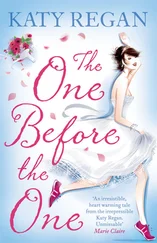“ Got to ? Is that — are we in The Parallax View suddenly and no one bothered to—”
Hoover worked the wet wad of paper like it was a ball of dough, kneading and squeezing.
“It’s a problem, Ben. That’s all I’m — a major fucking—”
“I know.”
“We need to — you can’t just—”
“I won’t. Don’t be such a girl.”
Kipling went to the door, pushed it open. Behind him, Hoover balled up his wet paper towel and fired it at the garbage can. It went in clean.
“Still got it,” he said.
* * *
As he approached the table, Kipling saw that Tabitha was doing her job. She was lubricating the clients with booze and telling the men — two Swiss investment bankers vetted and referred by Bill Gilliam, a senior partner at the law firm that handles all their deals — inappropriate stories about men she blew in college. It was two thirty on a Wednesday. They’d been at this restaurant since noon, drinking top-shelf scotch and eating fifty-dollar steaks. It was the kind of restaurant men in suits go to to complain that their pools are too hot. Among the five of them, there was a net worth of almost a billion dollars. Kipling himself was worth three hundred million on paper, most of it tied up in the market, but there was also real estate and offshore accounts. Money for a rainy day. Cash the US government couldn’t track.
Ben had become, at age fifty-two, the type of man who said Let’s take the boat out this weekend . His kitchen could be used as backup if the power ever went out at Le Cirque. There was an eight-burner Viking range with grill and griddle. Every morning he rose to find half a dozen onion bagels laid out on a tray with coffee and fresh-squeezed orange juice, along with all four papers ( Financial Times , the Wall Street Journal , the Post , and the Daily News ). When you opened the fridge at the Kiplings’, it was like a farmers market (Sarah insisted they eat only organic produce). There was a separate wine fridge with fifteen bottles of champagne on ice at all times, in case a New Year’s Eve party broke out unexpectedly. Ben’s closet was like a Prada showroom. Wandering from room to room, one wouldn’t be wrong to assume that Ben Kipling rubbed an urn one day and a genie popped out, and now all he had to do was say I need new socks out loud anywhere in his apartment and the next morning a dozen pairs would appear out of fucking nowhere. Except in this case the genie was a forty-seven-year-old house manager named Mikhail, who majored in hospitality at Cornell and had been with them since they moved into the ten-bedroom estate in Connecticut.
The TV over the bar was showing highlights from the Red Sox game last night, sportscasters running the odds of Dworkin breaking the single-season hit record. Right now the man was on a fifteen-game hitting streak. Unstoppable was a word they used, the hard consonants of it following Ben to his seat.
In forty minutes, he’d head back to the office and sleep off the meat and the booze on his sofa. Then at six the driver would take him up the parkway to Greenwich, where Sarah would have something on the table — takeout from Allesandro’s probably — or no, wait, shit , they’ve got that dinner tonight with Jenny’s fiancé’s parents. A meet-and-greet kind of thing. Where were they doing that again? Someplace in the city? It’s gotta be in his calendar, probably written in red like a twice-prolonged appointment for a barium enema.
Ben could picture them now, Mr. and Mrs. Comstock, he the portly dentist. His wife with too much lipstick, in from Long Island— Did you take the Grand Central or the BQE? And Jenny would sit there with Don or Ron or whatever her fiancé’s name is, holding hands, and telling stories about how she and her parents “always summer on the Vineyard” without realizing how privileged and obnoxious that sounds. Not that Ben was one to talk. This morning he’d found himself debating the estate tax with his personal trainer and he’d said, Well, look — Jerry — wait till you’ve got a hundred million plus in mixed assets that the government wants to tax twice and see if you still feel the same .
Kipling sat, exhausted suddenly, and picked up his napkin reflexively, even though he was done eating. He dropped it into his lap, caught the waiter’s eye, and pointed to his glass. Another one , he said with his eyes.
“I was just telling Jorgen,” said Tabitha, “about that meeting we had in Berlin. Remember when the guy with the John Waters mustache got so mad he took off his tie and tried to strangle Greg?”
“For fifty million, I woulda let him,” said Kipling, “except it turned out the fucking guy was broke.”
The Swiss smiled patiently. They had zero interest in gossip. Nor did it seem that Tabitha’s exaggerated cleavage was having its usual effect. Could be they’re queer , thought Kipling with zero moral judgment, just a computer recording facts.
He chewed the inside of his cheek, thinking. What Hoover said to him in the men’s room was ricocheting around in his brain like a bullet that had missed its target then took an unlucky hop off the pavement. What did he know about these guys, really? They’d come recommended from a reliable source, but how reliable was anyone when you get right down to it. Could they be FBI, these boys? OFAC? Their Swiss accents were good, but maybe not great.
Kipling had a sudden impulse to drop cash on the table and walk away. He tamped it down, because if he was wrong, it was a hell of a lot of money to walk away from, and Ben Kipling wasn’t a man to walk away from— what did the Swiss say ? Potentially a billion dollars in hard-to-convert currency? Fuck it, Ben decided. If you’re not going to retreat then you’ve got to charge. He opened his mouth and gave them the hard sell without getting too specific. No hot phrases that could be used against him in court.
“So, okay with the small talk,” he said. “We all know what we’re doing here. The same thing cavemen did in the age of the dinosaur, sizing each other up, seeing who you can trust. What’s a handshake, after all, except a socially acceptable way to make sure the other guy doesn’t have a knife behind his back.”
He smiled at them. They looked back, unsmiling, but engaged. This was the moment they cared about — if they were who they said they were. The deal. The waiter brought Kipling his scotch, put it on the table. By habit, Ben moved it deeper toward the center of the table. He was a hand talker and had spilled his fair share of cocktails in the middle of a good monologue.
“You have a problem,” he said. “You’ve got foreign currency you need to invest in the open market, but our government won’t let you. Why? Because at some point that money found its way to a region they keep on a list in some federal building in DC. As if the money itself had a point of view. But you and me, we know that money is money. The dollar a black guy in Harlem uses to buy crack with today is the same dollar a suburban housewife uses to buy Hamburger Helper tomorrow. Or that Uncle Sam uses to buy weapons systems from McDonnell Douglas on Thursday.”
Ben watched plays of the day on the television — a string of towering home runs, shoestring catches, and baseline rundowns. It was more than a passing interest. Ben was an encyclopedia of arcane baseball figures. It was a lifelong passion, one that had taught him (coincidentally) the value of a dollar. Ten-year-old Bennie Kipling had the premier bubble-gum card collection in all of Sheepshead Bay. He dreamed one day of playing center field for the Mets and every year tried out for Little League, but he was small for his age and slow on the base path and couldn’t hit the ball out of the infield, so he collected baseball cards instead, studying the market closely, exploiting the amateur mind-set of schoolmates — who focused only on players they liked — tracking rare cards and playing the rise and fall of each player. Every morning Bennie would read the obituaries, looking for signs that the recently deceased were baseball fans, and then he’d call the widows, saying he knew their husbands (or fathers) from the trading card circuit and how so-and-so had been a mentor to him. He never asked for the decedent’s collection outright, just played up his saddest little-boy voice. It worked every time. On more than one occasion he took the subway into the city to collect a once prized box of baseball nostalgia.
Читать дальше












